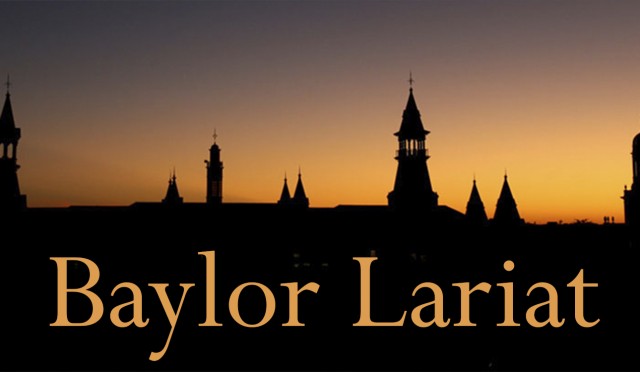By Madison Miller
Reporter
There is one thing that all Baylor students have in common: the use of AirBear, Baylor’s beloved Wi-Fi system. Students, faculty and staff have access to the system throughout the buildings and common places on campus.
The Student Senate unanimously passed a bill in favor of enabling the enhancement of Wi-Fi throughout campus.
The bill, written by Frisco sophomore James Porter, a student senator, proposes that Wi-Fi be added to multiple locations, such as the deck outside of Marrs McLean Science Building, Fountain Mall and Bennett Auditorium, among others.
“We just wanted to create the best number of possible additional locations on campus to be able to add in additional Wi-Fi,” Porter said.
According to the Information Technology Services website, the current Wi-Fi is “based on the proximity to a classroom or common area.”
If the student government’s bill is approved by regents, it will not be an umbrella Wi-Fi, but more specific to locations where students study outdoors and in other buildings that may not have Wi-Fi.
“Because of the form of Wi-Fi technology the Baylor administration uses right now, there is not like a blanket Wi-Fi,” Porter said. “It is ‘Pick a location, put it here.’… They do not have any problem whatsoever funding it. This is more so that they wanted students to be able to give their opinion of where it should go to.”
Port Barre, La., sophomore Sen. Lindsey Bacque and Porter walked around campus with phones and computers finding out where the Wi-Fi was lacking. The areas listed in the bill were chosen specifically for enhancement.
“The areas that we tried to target were the areas where it seemed like the university had already put funding into areas for students to study,” Bacque said. “Areas like outside Marrs McLean Science, there is already a deck built so the most concerning thing to us was that that deck was built and nowhere on that were we able to pick up Wi-Fi.”
The passing of this bill will benefit the students and their ability to study in more locations around campus. The supporters of the bill believe that it will help with the overcrowding of the libraries around finals time, and for people who have certain data plans on their phones, this provides more locations to be able to use the Internet.
With Baylor’s use of Internet resources such as Blackboard, Canvas and other systems, the Wi-Fi enhancement bill will help students to utilize these systems more effectively.
“It is better to have more Wi-Fi that can be spotty at times than to have a dead zone whatsoever,” Porter said. “I think any improvement is going to be better for students than the status quo.”
This is an ongoing process and there is not a set time frame for when all of the locations may acquire the enhanced Wi-Fi, Porter said.
The bill is awaiting Student Body President, Dominic Edwards’, signature, Bacque said. If he signs, it will then go to various administrators.
“We want to create a more technologically advanced campus,” Porter said.
Other bills passed at the meeting were a mobile safety app for students to keep in touch with the Baylor Police Department, a bill proposal to add news stands on campus and feature newspapers from different locations.



